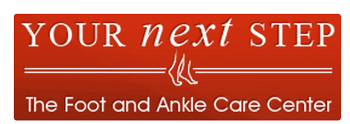Ouch! Have you been awakened from sleep by severe foot or calf pain? Or after a vigorous run, did you feel intense pain in your calf? If so, you have suffered a muscle cramp, also known as a charley horse. These uncontrolled abrupt muscle contractions are generally harmless but quite painful.
What Causes Foot Cramps?
A common cause of sudden muscle cramps is overuse from extended periods of exercise or work – especially during warm weather. Dehydration can also bring on the contractions as can holding your foot of leg in the same position for too long. But often the precise cause is a mystery.
Although an occasional cramp is probably harmless, persistent cramps should not be ignored as they may point to a more serious medical condition such as:
Nerve compression. Leg cramps caused by lumbar stenosis, or compressed spinal nerves tend to get worse when walking. Walking with a slight bend at the waist can ease the cramp.
Mineral depletion. Muscles may painfully contract if your body doesn’t have enough of certain minerals like potassium, magnesium or calcium. A mineral shortage may result from taking certain medications like a high blood pressure prescription that contains a diuretic draining off vital minerals.
Inadequate blood supply. If arteries are narrowed, the lower extremities may not receive an adequate blood supply. In this case, exercise can bring on foot and leg cramps. Resting can relieve the contraction.
Act Quickly to Relieve Foot and Leg Cramps
Dr. Eric Ricefield, Dr. Mark Yagodich and Dr. Aliza V. Eisen recommend taking action as soon as you feel a muscle cramp:
- Stand up to put weight on the cramped leg, keeping the knee slightly bent. You can also sit on the floor, extend your leg and gently pull back on the toes.
- Rub the area and do a gentle stretch so it relaxes.
- A warm towel or heating pad will loosen up tight muscles, as can warm water from a bath or shower.
Prevention is Key
It’s important to stay hydrated – it’s good for overall health and can shrink the chance of foot cramps. Fluids help muscles contract and relax, and also keep muscle cells hydrated. Drink plenty of fluids – especially water – every day, and replenish fluids during and after exercise.
A gentle stretch before bedtime can help prevent night cramps.
Your medications may be depleting your body’s minerals – talk to your doctor about your concerns. Eating a banana a day can help build up potassium levels.
Persistent Foot Cramps Are Not Normal
If you have continuing cramping with no obvious cause, or contractions accompanied by muscle swelling, weakness or redness, contact Your Next Step via the website for an evaluation at our offices located in Ardmore, Paoli and Downingtown. Our board certified or qualified podiatrists will thoroughly examine your feet and legs, review your health history and recommend a treatment program to relieve your discomfort.
